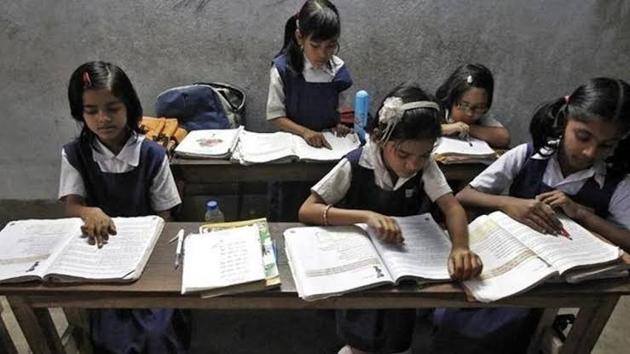Future of civic schools is bleak
A recent report from education think tank Praja Foundation says number of students at municipal schools continue to decline.
This column has discussed the decline of Mumbai’s municipal schools. Between 2008 and 2019, the number of students enrolling in Class 1 has dropped nearly 50%, with 32,218 students joining the class in 2016-17 compared to 67,477 new enrolments in 2009-10, and 63,392 in 2008-09.

A recent report from education think tank Praja Foundation says number of students at municipal schools continue to decline. Enrolment in Class 1 dropped to 27,918 in 2018-19. Most of these students will drop out of the schools before they graduate to class 10, either to join private government-aided schools or discontinue education. The report says retention rate in the schools was 22.3% in 2018-19. This means for every 100 students who enrolled in Class 1, only 22 continued till Class 10.
The future of these schools is precarious. A survey commissioned as part of the study found that 87% of the parents whose children studied in municipal schools, want to shift their children to private schools. In the last decade, 257 municipal schools have shut down, 41 in the last academic year alone. An earlier report had said 142 schools did not get new students for five years, forcing the civic body to merge them with other institutions in the neighbourhood. If the trend continues, the number of students at these schools will drop below 1,50,000 in 2022-23.
However, the poor quality of education is not because of lack of funds. The fact that the Brihanmumbai Municipal Corporation (BMC) is one of the richest civic bodies in the country means that the schools receive enough funds. According to the annual budget for BMC’s education department the annual budget per student per year has increased from ₹50,586 in 2014-15 to ₹60,878 in 2018-19. This is similar to fees charged by many private schools that follow the Central Board of Secondary Education (CBSE) and ICSE syllabi.
Infrastructure is not a problem either. Most BMC schools are located in large buildings, many of which are now being renovated. BMC is also experimenting with modern teaching tools; in 2011, ‘digital classrooms’ were set up in nearly 500 schools. In 2015, BMC bought 22,800 tablets preloaded with the curriculum for students in Classes 8, 9 and 10.
Despite the infusion of funds and ideas, parents do not trust municipal schools to equip their children with academic tools. Many even prefer illegal private institutions to municipal schools. Earlier this year, BMC declared 211 privately-run schools, with around 12,000 students, illegal as they do not meet infrastructure norms and lack adequate teaching staff.
BMC is toying with more ideas to stop the decline in number of enrolments at its schools, which includes plans to start its first CBSE and ICSE affiliated schools. The municipal corporation is renovating its schools, besides connecting classrooms to the digital world. All these efforts have, however, failed to increase enrolments.
So what can be done to save these schools? The remedy, according to groups like Praja Foundation, is to monitor and improve educational outcome. This means improving the quality of education. BMC has mechanisms to do this. It has constituted school management committees (SMCs), consisting members from the teacher and parent community, along with experts and councillors, to oversee the functioning of the schools. The committees have to meet regularly to discuss and solve challenges faced by the schools, but BMC councillors seem to be apathetic about the decline. The Praja Foundation report says three out of four councillors did not attend a single meeting in 2018-19.
Another solution is to take help from not-for-profit education groups to run the schools. An earlier report from Praja Foundation revealed the schools which are running with the help of private groups do better with lower dropout rates and inculcate better learning skills among students. This has been, however, a sensitive topic with a section of BMC councillors who feel that allowing private groups into schools could jeopardise the municipal corporation’s property rights.

Stay updated with all the Breaking News and Latest News from Mumbai. Click here for comprehensive coverage of top Cities including Bengaluru, Delhi, Hyderabad, and more across India along with Stay informed on the latest happenings in World News.
Stay updated with all the Breaking News and Latest News from Mumbai. Click here for comprehensive coverage of top Cities including Bengaluru, Delhi, Hyderabad, and more across India along with Stay informed on the latest happenings in World News.
 Get alert on your mobile and email as soon as the result is declared. For this, please provide information.
Get alert on your mobile and email as soon as the result is declared. For this, please provide information. 




